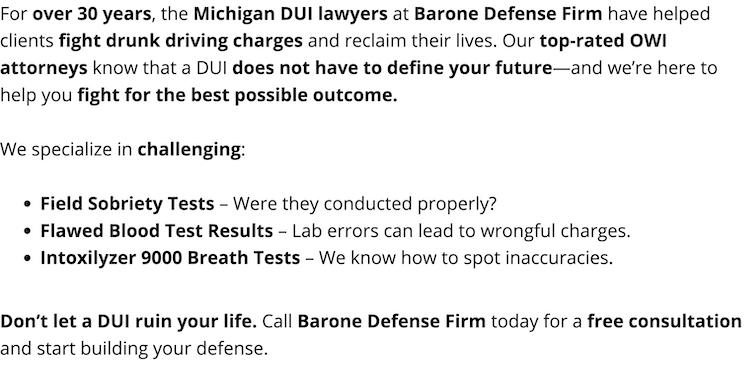Driving While Impaired: MI Operating While Visibly Impaired
Driving while impaired: Police officers in the Great Lakes State can charge a drunk driving suspect or a stoned suspect in Michigan with OWVI (operating while visibly impaired) when any quantity of alcohol, marijuana or other drugs are (to that officer) affecting the driving skills or the safe driving ability of that motorist. Such slowing of an operator's reflexes (while operating a motor vehicle) poses a danger to pedestrians and other motorists on the highways, waterways, or sidewalks.
This provision under the laws controlling impaired driving in Michigan is just one of several Michigan operating while impaired statutes, as codified in MCL 257.6253-a of part (1) of the Michigan OWI laws. OWVI Michigan is a distinct classification of criminal driving offense involving impaired driving under the influence.
This offense is often subject to a great deal of controversy since police may arrest someone even if their BAC is under the legal limit. In Michigan, all that is all the evidence required to make an OWVI arrest --- law enforcement’s individual opinion (from observations) that someone is not capable of operating a motorized vehicle safely. In other words, the police can arrest you even if your BAC is under 0.08%.
A recent Michigan Court of Appeals case (People v. Dupre) stated that (in an OWVI marijuana case), having your medical marijuana card does not allow you to operate any motor vehicle while visibly impaired. That citation is found at 335 Mich.App. 126 (2020).
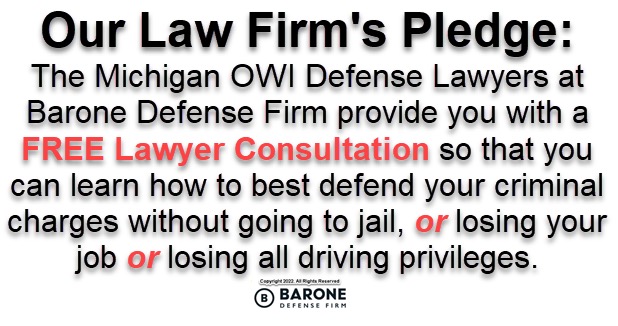
Various acronyms used for operating while intoxicated Michigan. This specific offense ("OWVI") is separate and different from an OWI charge in Michigan. The acronym OWI used in Michigan is the equivalent of a DUI or DWI or OUI or OVI, as statutorily set forth in other states' drunken driving laws.
Impaired driving vs DUI Michigan. Operating while under the influence merely signifies that (due to the alcohol breath instrument "reading,") you violated the law by being in control of any vehicle (moving or not) while having that prohibited level of ethanol (drinking alcohol) in your system. Alcohol-based drinking and driving cases in MI are about 90% of all operating while impaired arrests, too.
The Michigan Legislature has criminalized this “conduct” as being a violation of our prohibited alcohol limit for adult-age drivers or operators of any vehicle. This Michigan crime is better known as the "Michigan OWVI" law, which is sometimes transposed by clients as "OVWI."
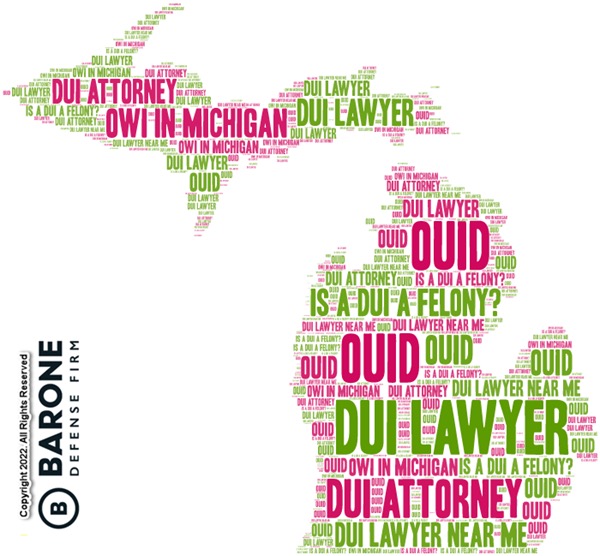
Is there a similar acronym for an OVWI case? Yes, there is. While our Michigan lawmakers wrote our law as "operating while visibly impaired" Michigan, our sister state of Indiana has an OVWI charge, which is their lesser crime from an OWI in Indiana. So, in Indiana, DUI-OVWI are interchangeable terms, just like OWVI and DUI in Michigan.
OWI vs DUI Michigan. In fact, since (in the United States) the acronym "D.U.I." is in used in over thirty-five (35) states, most Michiganders facing prosecution for a "while visibly impaired" charge or an OWI offense default to using the abbreviation DUI, or DWI (driving while intoxicated) in different cases.
Is there any meaningful difference between OWI and DUI Michigan. Not really. The difference between OWI and DUI is one letter, and this is only due to Legislative preferences on how to best describe the same criminal act. When you call our lawyers near me for a FREE consultation, we will clarify this further.
Impaired Driving vs OWI Michigan: What's the Difference?
For those drivers in Michigan arrested for driving while impaired who take the post-arrest implied consent test (on a Datamaster breath alcohol test device), which reveals a BAC (blood alcohol content) of 0.08 grams percent (the adult age 21 and over legal limit) will be charged with OWI.
For such operating while impaired Michigan cases, any type of motorized vehicle "counts." So, a car, SUV, puck-up truck, airplane, watercraft (boat), moped, farm tractor, 4-wheeler, motorcycle, or any other transportation mode (including a golf cart, motorized skateboard, or lawn mower) if propelled by an engine) is a covered "vehicle" under our state's OWI laws.
This applies whether you are driving a car, boat, or any other type of motorized vehicle. A DUI charge is like OWI which means operating a vehicle while under the influence of alcohol over the legal limit. In other states (e.g., Alabama, Georgia) DUI may refer only to motor vehicle-related incidents on land while OWI can also involve a watercraft or any other motorized vehicles, under the laws in Michigan and other states (e.g., South Carolina).
By contrast to the MI OWI law, a driver can be arrested for an OWVI with no minimum level of breath or blood alcohol content (or marijuana delta-9 nanograms) being required to be proven by the police officer making that arrest. So, Michigan laws distinguish between intoxicated driving (in cases where the "number" is 0.08 gr. % or higher) and impaired driving, which is often based upon one or more of these types of circumstantial evidence:
- Odor of alcohol on the suspect's breath;
- Physiological symptoms consistent with alcohol impairment, (like slowed reaction times, lack of ability to balance, fumbling with wallet or dropping driver's license);
- Operator's admission to consuming alcohol, marijuana, or drugs prior or while driving or operating any vehicle with a motor; or
- Driving errors (e.g., traffic offenses, boating maneuvers, or failure to obey rules of the road) observed by the law enforcement officer or a witness who calls in a dangerous driver or operator).
[See a full summary of various DUI penalties and OWI punishments under Michigan OWI laws, on our helpful chart]
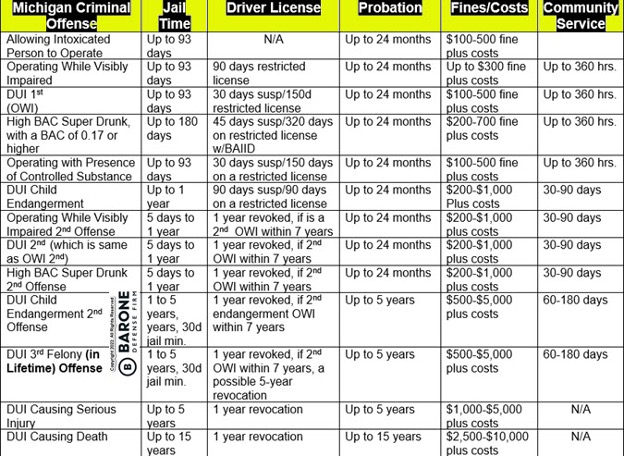
Which Is Punished More Harshly, OWI vs OWVI Michigan?
Michigan's moniker for the criminal offense of "impaired driving" is the OWVI crime. A MI O.W.V.I. charge is a lesser offense than an O.W.I. in Michigan.
That only means that certain penalties for an OWI Michigan first offense are more onerous than for OWVI, such as a shorter mandatory impaired driving probation period for OWVI, as a Michigan "condition of probation." In addition, any misdemeanors are punished far less than any felony DUI-OWI in Michigan.
All cases still will be overseen by a probation officer, and have requirements for paying fines, going to DUI school, performing community service, paying a driver responsibility fee. Then, adding OWI Michigan points to your driving record, though the number of points will be less for an OWVI conviction than for an OWI conviction in Michigan.
Various laws for driving while impaired Michigan offenses. Regardless of gradation of the two different crimes, being charged with either criminal offense puts that person of risks to employment, travel, and certain other opportunities (i.e., being allowed to teach your children at a weekly church class, if a background search is done).

What Should I Do if I Get Pulled Over for OWI?
Getting pulled over for an OWI can be scary, especially if you're a first-time offender. However, the way you respond is crucial and could impact the outcome of your case. Follow these steps to help your case:
- Pull over in a safe place. Move your vehicle to the side of the road to keep yourself and the police officer as safe as possible.
- Always be respectful. Even if you're upset with the officer for pulling you over, remain calm and respectful to avoid escalating the situation. The police officer might become more aggressive if they feel threatened. You could also face additional charges, such as resisting arrest or disorderly conduct, which may add more penalties.
- Comply with the officer. You'll likely need to provide your license, car registration, and proof of insurance after you're pulled over.
- Limit what you say. Never share information willingly if the officer doesn't ask you questions. Depending on what you say, you could incriminate yourself. You can remain silent, even if the officer asks you questions. This could be the best option to avoid giving the officer a reason to arrest you.
- Decide if you want to submit to testing. If the officer suspects you of drunk driving, they may ask you to do field sobriety exercises or take a roadside breath test. You're not required to do those tests. However, you may receive a fine for refusing to do the roadside breath test. You can also be arrested if the officer suspects you're intoxicated. If you refuse to take the breath test at the police station, you could lose your license and driving privileges for up to a year.
- Don't resist arrest. If the police officer arrests you, remain calm and comply with their instructions. Being uncooperative could result in injuries or additional charges.
- Request a lawyer. You have the right to request a lawyer before talking to the police. This could prevent you from saying things that incriminate you. Call Barone to get the best possible legal representation from the beginning. Our experienced defense attorneys can provide legal advice to help you avoid jail time and minimize the consequences.
Making Your Choice for a Criminal Defense Attorney
Can an OWI lawyer get my OWI reduced to careless driving Michigan? The potential penalties (even for an OWVI Michigan first offense) may affect your career and future, even for a first-time offender. You should talk to an experienced criminal defense lawyer at Barone Defense Firm (BDF) as soon as possible since we have STATEWIDE coverage.
Contact us 24 hours a day at the BDF law office. Use our easy-to-remember toll-free number, 1-877-ALL-MICH or 877-255-6424, for a free criminal case review. The Michigan attorneys near me at BDF travel the entire Great Lakes State, to help citizens in legal trouble in Michigan for alleged criminal law violations.

Led by lifetime Michigander, Patrick T. Barone, veteran DUI-OWI law book author and a Michigan criminal defense attorney for over three decades. The lawyers for DUI near me at our law firm take immense pride in getting optimal results for clients.
For a FREE lawyer consultation, call today to learn how to protect yourself from a possible unwarranted OWI conviction and loss of driving privileges, due to missing the 14-day deadline (after arrest) to appeal the administrative suspension.
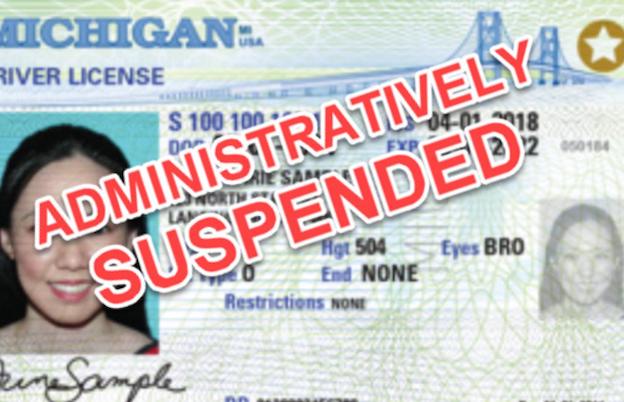
What do you have to lose, when the free legal advice with our litigation team’s criminal lawyers near me can answer your tough impaired driving questions?

 Barone Defense Firm Home
Barone Defense Firm Home
















